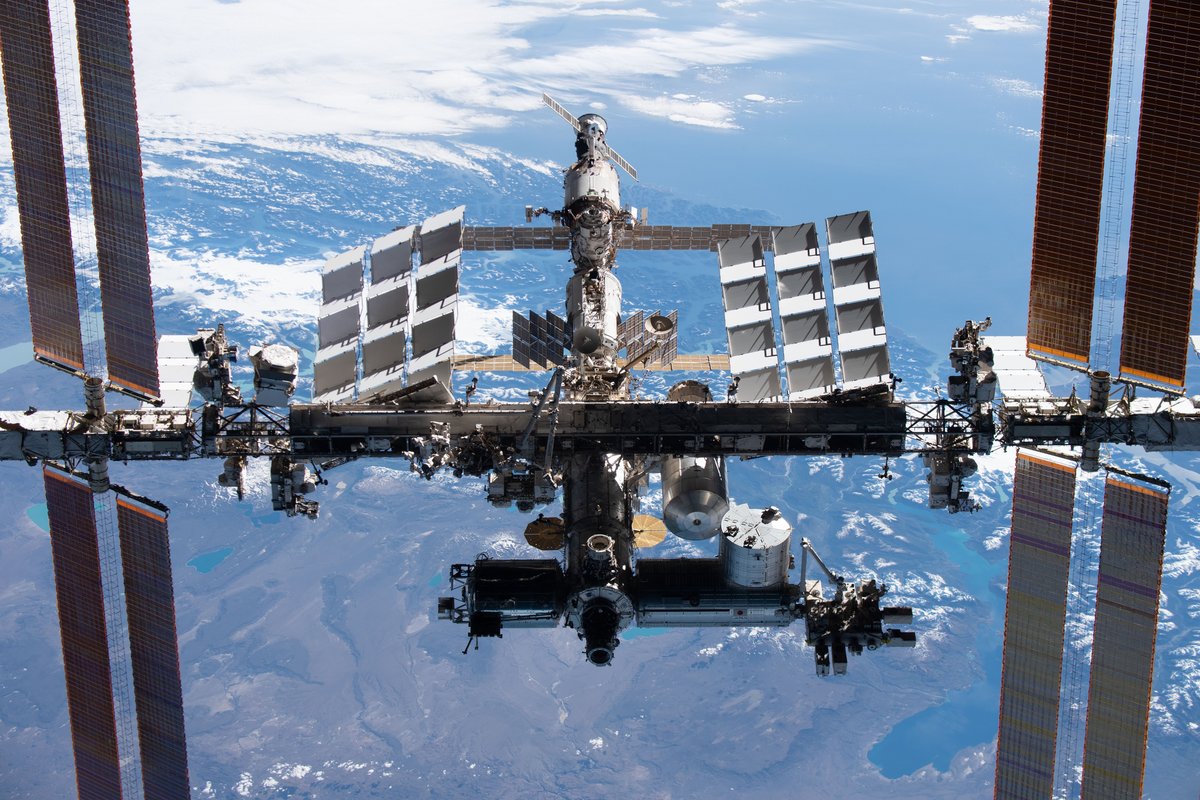Falling on a house in Florida, the debris is being studied at NASA. It is most likely a piece of a 2.6-ton pallet containing old batteries from the ISS, dropped in 2021. This incident serves as a reminder that sometimes, real tragedies are avoided by low probabilities.
In March 2021, voluntarily ejected by the robotic arm of the International Space Station, a pallet loaded with several old drum sets began its long journey before atmospheric reentry. It was neither a satellite nor a cargo ship, which means that this large 2.6-ton unit was not guided. And since it circled the Earth in less than 90 minutes, calculating the point where it would pass through the atmosphere to burn up was completely impossible.
This debris was carefully monitored, and NASA and other agencies eventually calculated that it had disintegrated over the Gulf of Mexico on March 8. The day and time coincided perfectly with the moment Alejandro Otero’s Nest connected system recorded a huge bang, and an object went through the roof and two floors of his home in Naples, Florida. After the media were contacted, and following a very convincing trajectory analysis, NASA agreed to analyze the debris with a view to possible compensation.
Straight from the ISS, delivered to your home in the blink of an eye
The incident is much talked about, in several respects. Firstly because it is not a gratuitous statement from a crazy person or an insurance scam. Indeed, the readings taken at home and those taken by his Nest sensor seem to prove his good faith.
On the other hand, several experts estimated during the release in 2021, but also a few days before its re-entry into the atmosphere, that this very dense palette for its small size (barely more than 2×1.5×1 meters) would produce debris. which would reach the earth’s surface, contrary to what NASA claimed. The American agency had communicated about this debris, saying that it expected that no fragment would reach the ground.
The implications for Mr. Otero’s reimbursement are anecdotal, although for the record, it may be up to Japan to foot the bill. Indeed, the nickel-hydrogen batteries of the ISS as well as their transport pallet were designed and delivered by Japan to the International Station.
What do I put on the report?
There remains the question of the moral and legal responsibility to dispose of debris, satellites or stages that could produce space waste capable of impacting the ground. There are very few proven cases, the vast majority of satellites and debris disintegrate in the atmosphere without any other source of debris other than dust reaching the ground (there is nevertheless the related subject, resulting air pollution).
In itself, States are responsible for what they send into orbit, but in reality, this could cause serious incidents. Some of them are indeed much more imposing than a set of batteries from the ISS…

Finally, let us point out that this ejection of a battery pallet was in some way a failed act. When replacing the station’s batteries, it was planned that Japanese HTV freighters would systematically take on board the used batteries for which they had brought replacements.
French astronaut Thomas Pesquet had also worked on these changes on a spacewalk. But there were delays, and eventually the last batteries were swapped out after the last HTV cargo ship left the ISS. So we had to get rid of it. A story that is not yet over!
Source : ArsTechnica


1